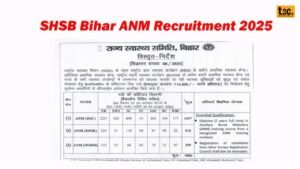Confession Before Police: Inadmissibility in Courts

Do you know that your statement or confession made before the police has inadmissibility value in courts of India. This means that your statement before the police is not of evidentiary value. The law generally prohibits the use of confessions made to police officers as evidence in court to protect individuals from coercion and undue pressure during interrogations.
In India, The Bharatiya Sakshya Adhiniyam (BSA) of 2023 governs the admissibility of confessions made to police officers. This law replaced the Indian Evidence Act (IEA) of 1872 on July 1, 2024. Additionally, the Bharatiya Nagarik Suraksha Sanhita (BNSS) of 2023, which replaced the Code of Criminal Procedure, 1973 (CrPC) on the same date, also plays a role in this area.
Key Provisions:
1. Section 23 (1) of the Bharatiya Sakshya Adhiniyam, 2023:
– This section states that the court cannot use a confession made to a police officer as evidence against the accused.
– The rationale is to prevent the possibility of police coercion or intimidation, ensuring that only voluntary confessions made under proper judicial oversight are admissible.
2. Section 23(2) of the Bharatiya Sakshya Adhiniyam, 2023:
– This section extends the prohibition in Section 23(1) by stating that courts will not admit a confession made in police custody unless the confession is made in the immediate presence of a Magistrate.
– This ensures that police officers do not influence confessions, making sure they are given voluntarily.
3. Proviso to section 23 of the Bharatiya Sakshya Adhiniyam, 2023:
– This section provides a limited exception to Sections 23. If a confession made by an accused person in police custody leads to the discovery of a fact, then that part of the confession that directly relates to the discovery may be admissible in court.
– This means that although the confession itself may not be admissible, the court can use any material or fact discovered as a result of the confession as evidence.
4. Section 183 of the Bharatiya Nagarik Suraksha Sanhita:
– This section outlines the procedure for recording confessions and statements before a Magistrate. A court will admit a confession recorded under this section if the accused makes it voluntarily. And also, the Magistrate ensures that the accused understands its implications.
– The Magistrate must also ensure that the accused is not making the confession under any pressure or influence.
One liner:- Confession Before Police: Inadmissibility in Courts
– Confession to Police Officer: Inadmissible as evidence in court (Section 23 (1) of the Bharatiya Sakshya Adhiniyam, 2023).
– Confession in Police Custody: Inadmissible unless made in the presence of a Magistrate (Section 23 (2) of the Bharatiya Sakshya Adhiniyam, 2023)).
– Discovery Based on Confession: Admissible, but only the part of the confession leading to the discovery of a fact (Proviso to section 23 of the Bharatiya Sakshya Adhiniyam, 2023).
– Confession Before a Magistrate: If made voluntarily, it is admissible when recorded under Section 183 of BNSS.
These legal provisions ensure that courts only use confessions made voluntarily and with full understanding of their consequences. It helps in reducing the risk of wrongful convictions based on coerced or involuntary statements.
Therefore, refrain from signing or being swayed by the words of the police. Always wait for your advocate’s advice before taking any further action.
Curious about the real benefits of student chapters? Our article uncovers everything you need to know—click to read and visit our website daily.
Puzzled about your future? Get personalized career guidance from our experts. Book your session today on Mytagapp.com!









